Celebrating Writing from Various Positions
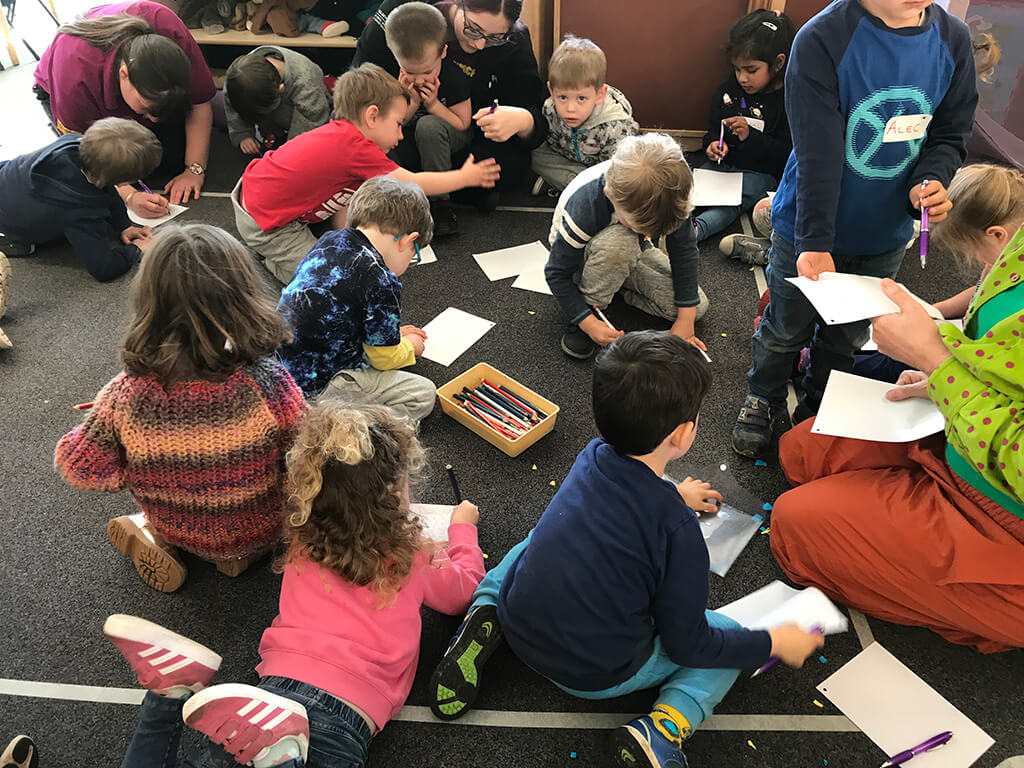
The Ofsted Bold Beginnings report stated a need for children in Reception to be taught proper pencil grip and how to sit correctly at a table. But why does writing always have to happen at a table? For the children I work, with the amount of self-elected writing they engage with is phenomenal. But hardly any of it happens in this conventional way.
As a writer, I often find myself adopting a range of positions when I write. I quite like sitting cross legged on the floor when I’m outlining a story by hand. Sometimes I lie on my belly and sketch out a character, and more recently I purchased a laptop stand that sits on my desk so that I can write standing up.
Sitting all day long is not good for any of us, regardless of our age. Our bodies are not designed for it. When we move less we burn less calories. Its harder for our bodies to digest food if we sit down on a full stomach. Sitting for long periods of times strains our neck and our shoulders and can give us back pain. We’re just not built that way. So why is there a growing insistence in the early years that children should get used to sitting at a desk, when any of us who work at a desk all day long know far too well how bad that is for us.
In this short blog I want to celebrate the writing positions of Reception aged children who have taken it upon themselves to start writing, and are doing it for the sheer fun of it.
Children write in many positions…
Let’s celebrate it…
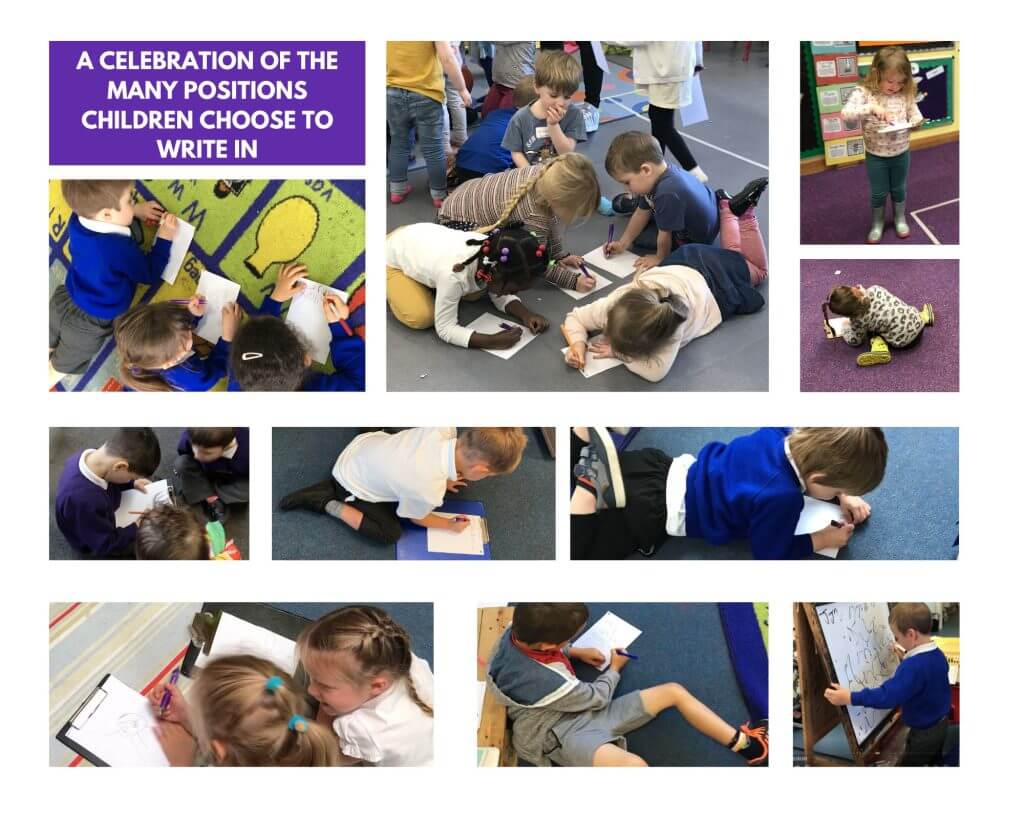
And for those of you who are interested in impact…
From September 2017 to July 2018, I delivered Helicopter Stories on a regular basis with a class of Reception children in one of the Lowest Super Output areas in Chippenham, Wiltshire.
When the group came in at the start of the academic year, only 27% of them were reaching the expected level in writing for children of that age. By the end of Reception this had increased to 76%. With the national average at 75% in 2017, I think that is pretty impressive.
Speaking went from 41% to 82%
Self confidence 58% to 88%
Imaginative Skills 59% to 100%
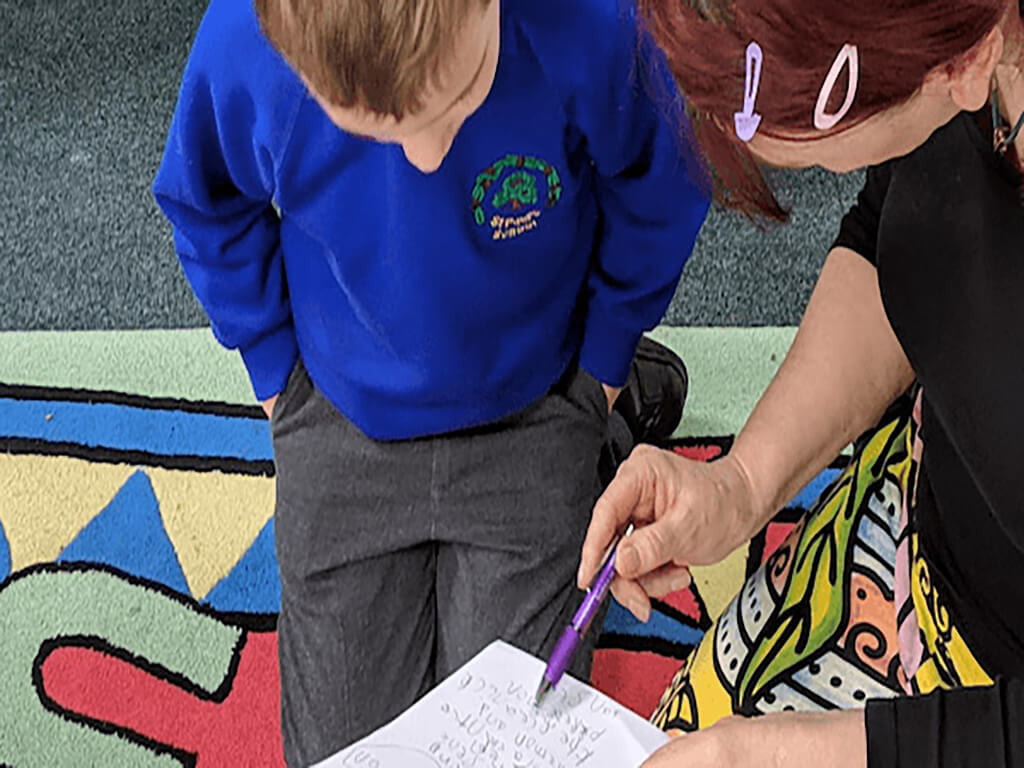
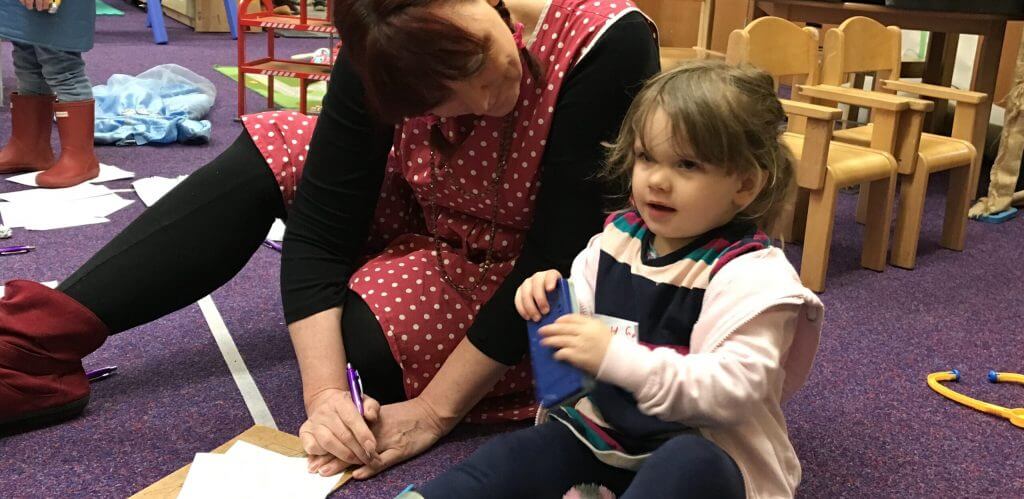
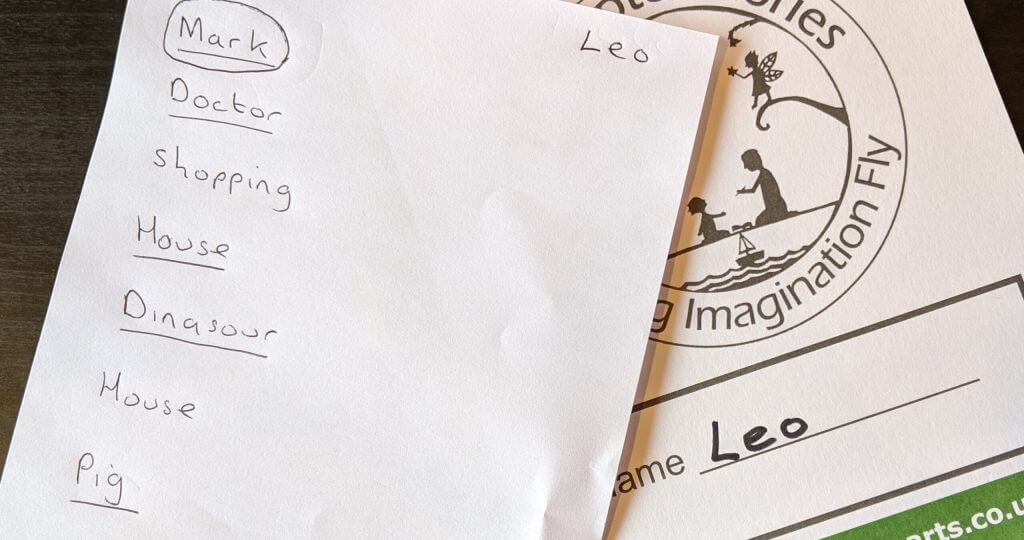
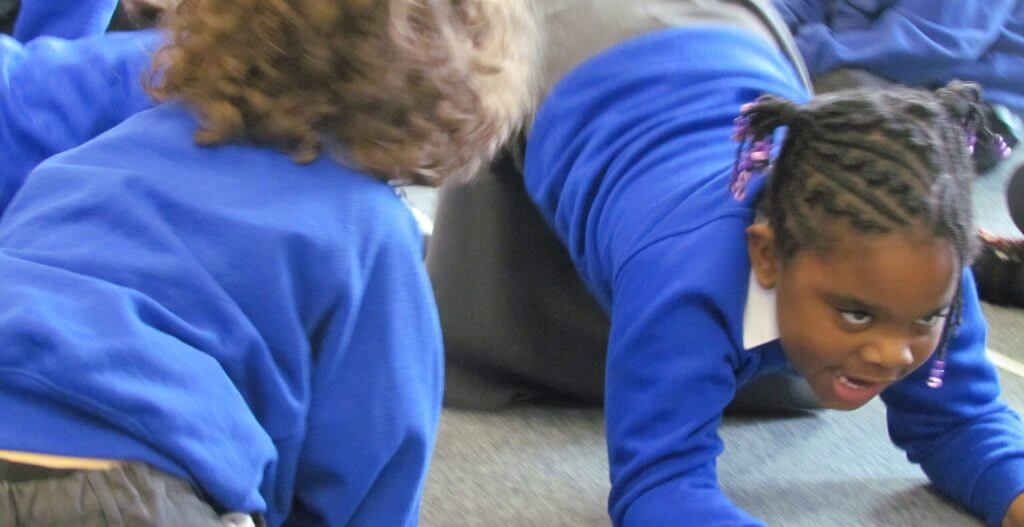
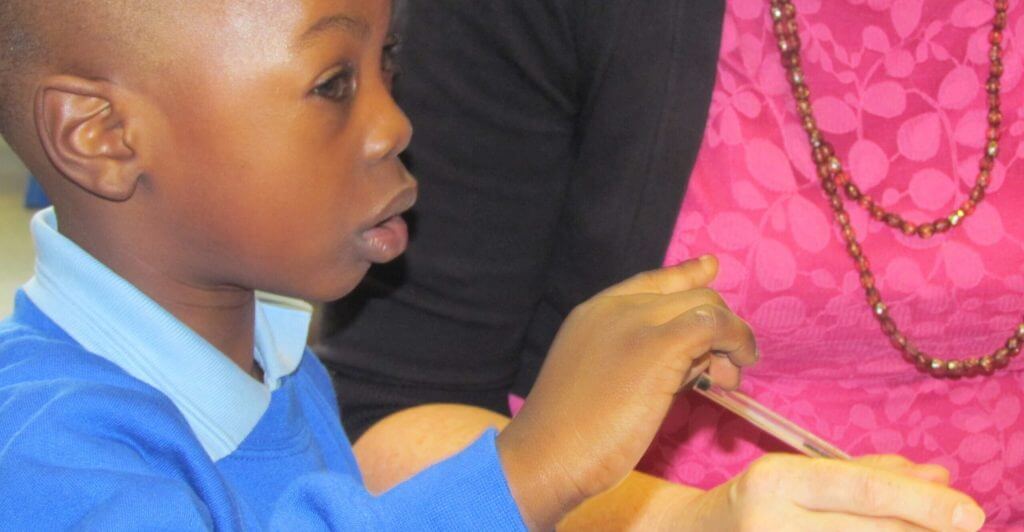

Responses